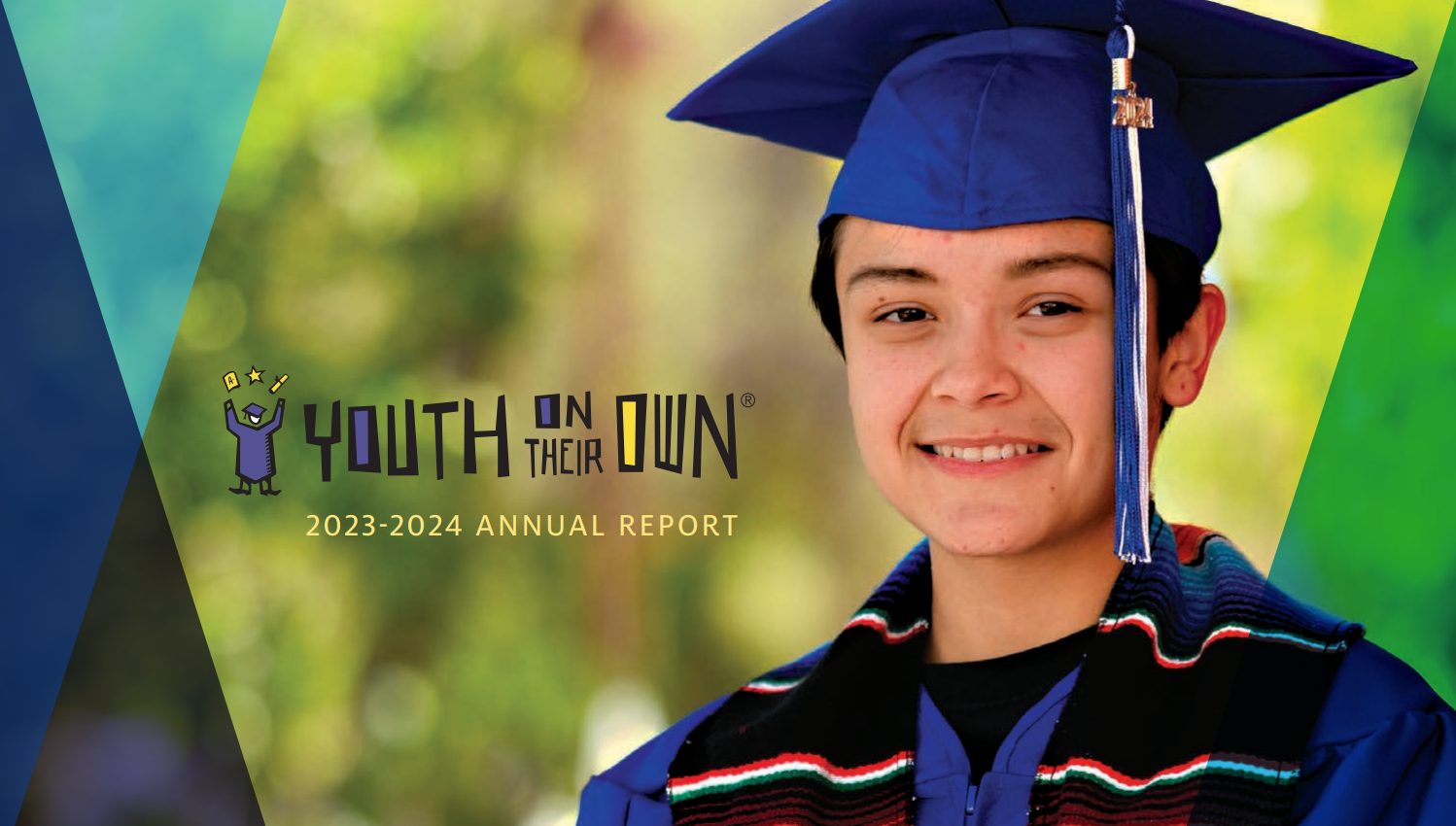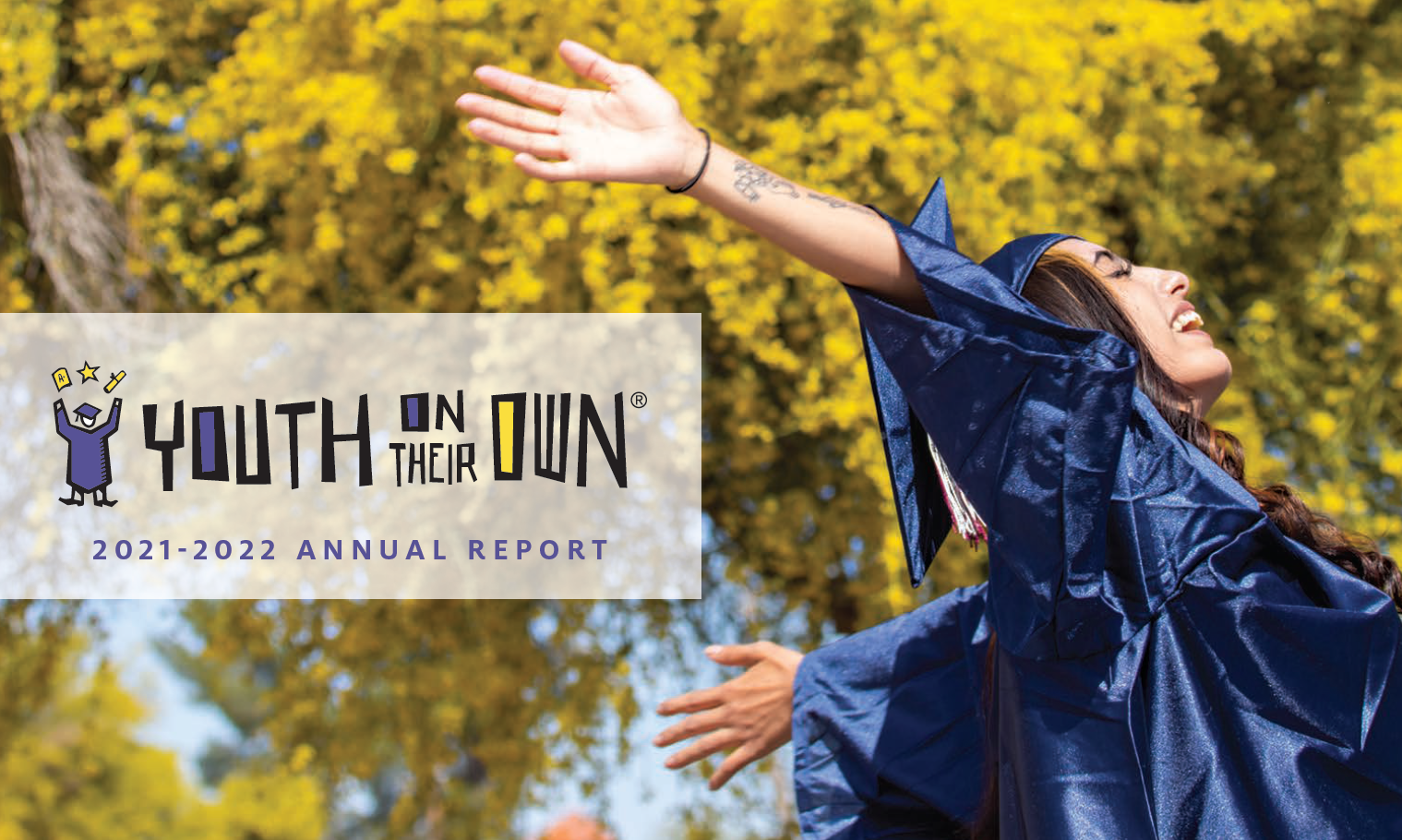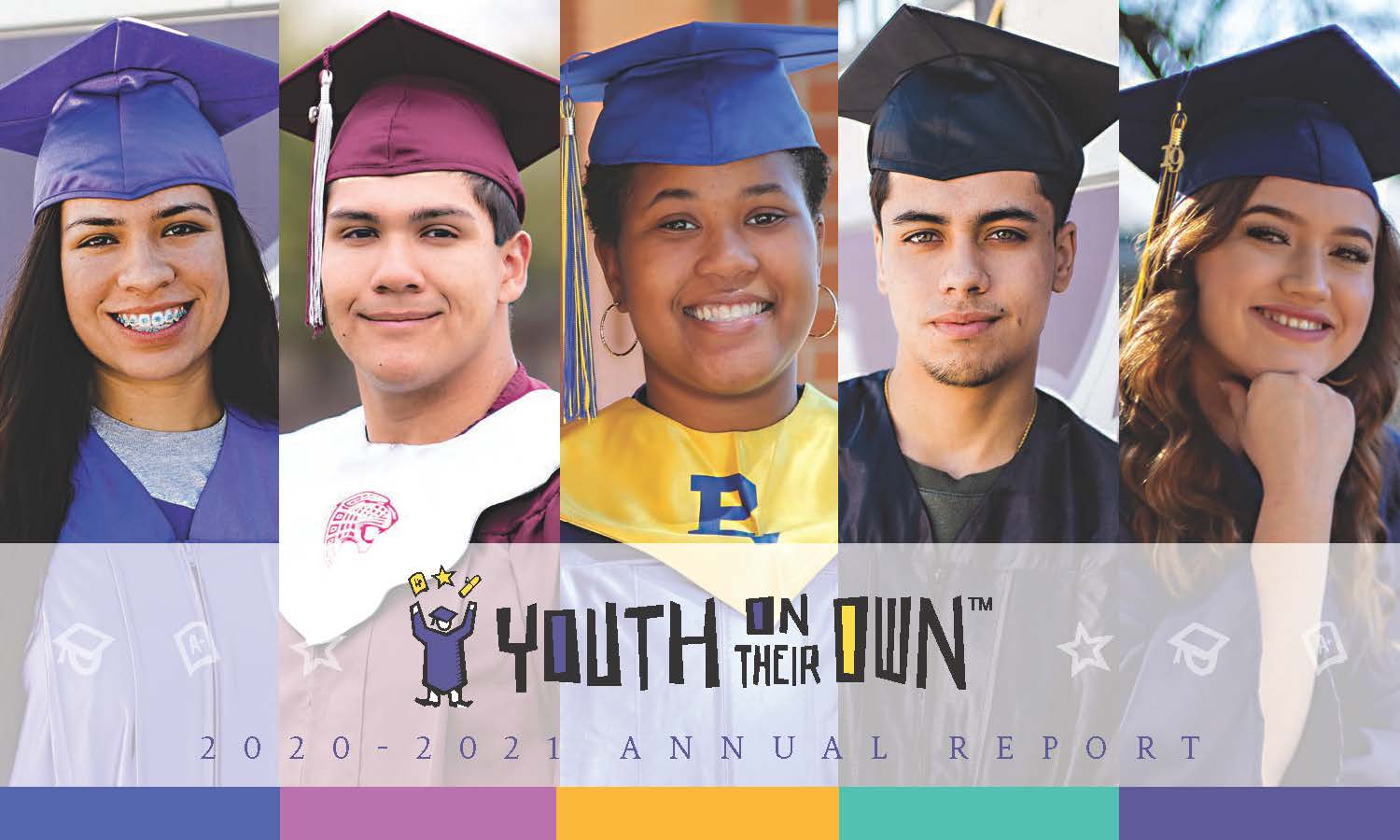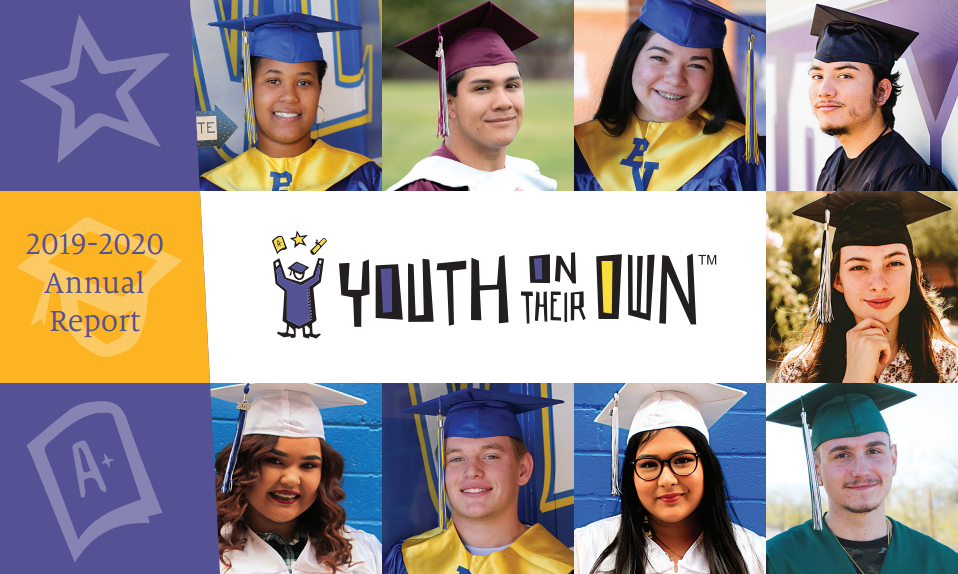About Us
Youth On Their Own (YOTO) is a dropout prevention program that supports the high school graduation and continued success of youth experiencing homelessness in Pima County.
 The organization was founded in 1986 when Ann Young, a guidance counselor in the Amphitheater School District, noticed that talented and motivated students were dropping out of school due to homelessness and being forced to live on their own without a parent or guardian. Inspired by the students’ tenacity and willingness to stay in school, other school counselors, teachers, volunteers, and community members came together to form YOTO with the goal of helping students graduate.
The organization was founded in 1986 when Ann Young, a guidance counselor in the Amphitheater School District, noticed that talented and motivated students were dropping out of school due to homelessness and being forced to live on their own without a parent or guardian. Inspired by the students’ tenacity and willingness to stay in school, other school counselors, teachers, volunteers, and community members came together to form YOTO with the goal of helping students graduate.
After consulting with her fellow teachers, Young’s initial idea was to buy a home for a group of homeless teenage girls. She presented this proposal, along with the stories of the students she aimed to help, to a group gathered at St. Andrew’s Presbyterian Church dedicated to assisting Tucson’s homeless community. People were appalled at the situations they were in, and jumped at the opportunity to lend them a hand. Soon, Young had an army of volunteers. She even managed to raise $80,000 in a single morning, thanks to the generosity of the congregation.

“My mother decided to stop being a parent. She kicked me out and made me feel I wasn’t important enough to love. Now that I’m in a group home and a freshman in high school, I am determined to graduate and make something of myself. With YOTO’s help, I know that I am on track to get my diploma.”
YOTO By The Numbers*

1,668
Youth Served

$2,014,323
Direct Financial Assistance to Youth

145
Cell Phones Issued

204,012
Basic Needs Items Distributed

93%
Graduation Rate
*July 1, 2023 – June 30, 2024
About Us (continued)
The money funded a group residence for homeless girls. Known as the St. Andrew’s Friendly Environment (SAFE) House, it quickly became apparent that SAFE House was not large enough to accommodate all of the students who needed services. It became increasingly expensive and was too much for one volunteer parent to handle. The community stepped forward again, and many families volunteered to take care of these students in need. It was an unexpected check from a New York City charitable foundation, though, that launched a stipend program to greatly increase the aid available to homeless teens.
Young’s experience with the SAFE House, which closed after two years, encouraged her to further expand the program. She applied for grants and spread the word about the charitable work the organization was doing. At this point, it was known as the Pima County Homeless Teen Project — a marketing specialist later dubbed it Youth On Their Own — and Young knew that if she wanted to continue her project, she would have to apply to become a full-fledged 501(c)(3) nonprofit foundation. After successfully gaining the designation, YOTO applied for and won a grant from Angel Charity for $100,000 for the stipend program in 1990. That funding coupled with a community-wide advertising campaign gave YOTO the exposure it needed to really take off and become the program it is today.
Since then, over 16,000 homeless and compromised students have been empowered to stay in school and pursue opportunities for self-sufficiency.
Financial and Other Reports
The following Policies, Financial Statements, Forms 990, and Annual Reports are available in PDF format and can be downloaded and viewed using Adobe Acrobat Reader.
YOTO’s Policies
Advocacy Policy
Anti-Discrimination & Anti-Harassment Policy
Board & CEO Succession Policy
CEO Performance & Compensation Review Policy
Code of Ethics
Confidentiality Policy
Conflict of Interest Policy
Document Retention Policy
Effectiveness Policy
Financial Reserve Policy
Gift Acceptance Policy
Grievance Policy
Insurance Review Policy
Investment Policy
Media Communications Policy
Privacy Policy
Procurement Policy
Safety Policy
Spending Rate Policy
Whistleblower Protection Policy
Strategic Plan
YOTO Strategic Plan FY25-FY27 Summary
“The Overhead Myth”
Help us spread the word that the percent of charity expenses that go to administrative and fundraising costs – commonly referred to as “overhead” – is not a primary measure of a charity’s performance and that results matter more!






